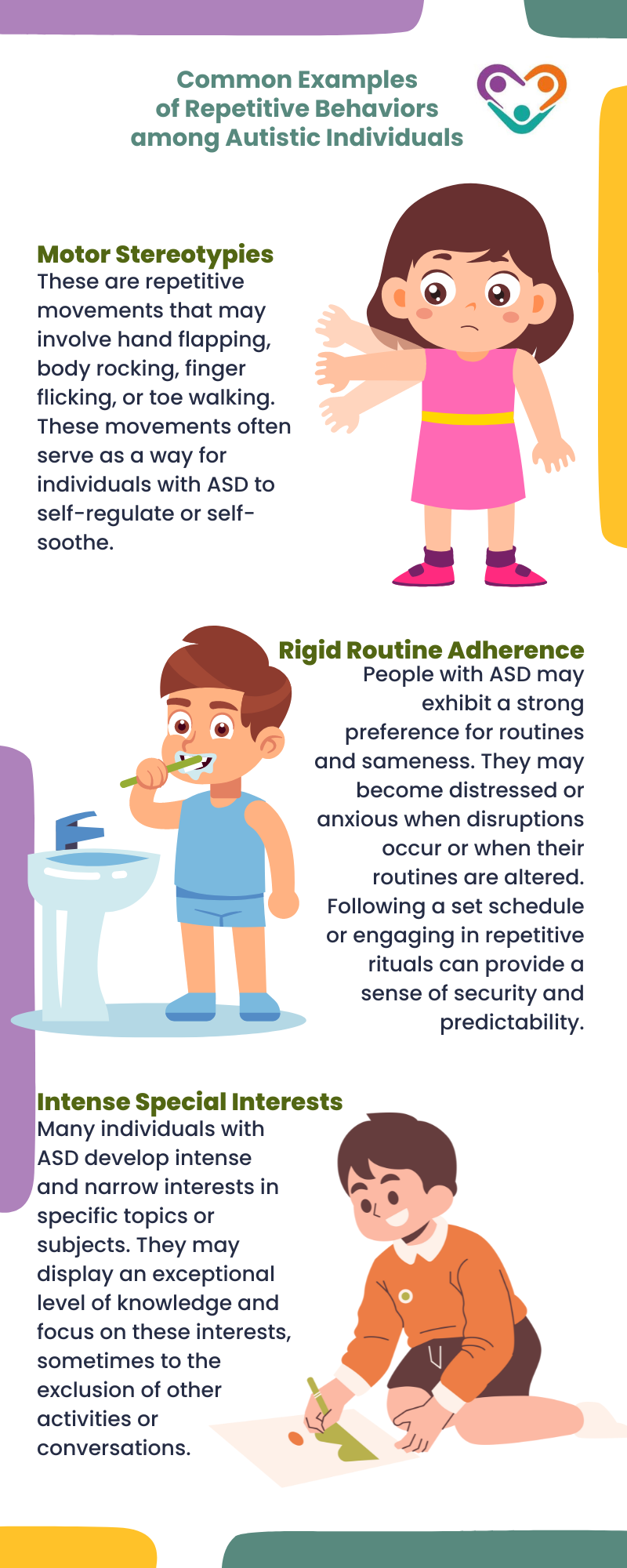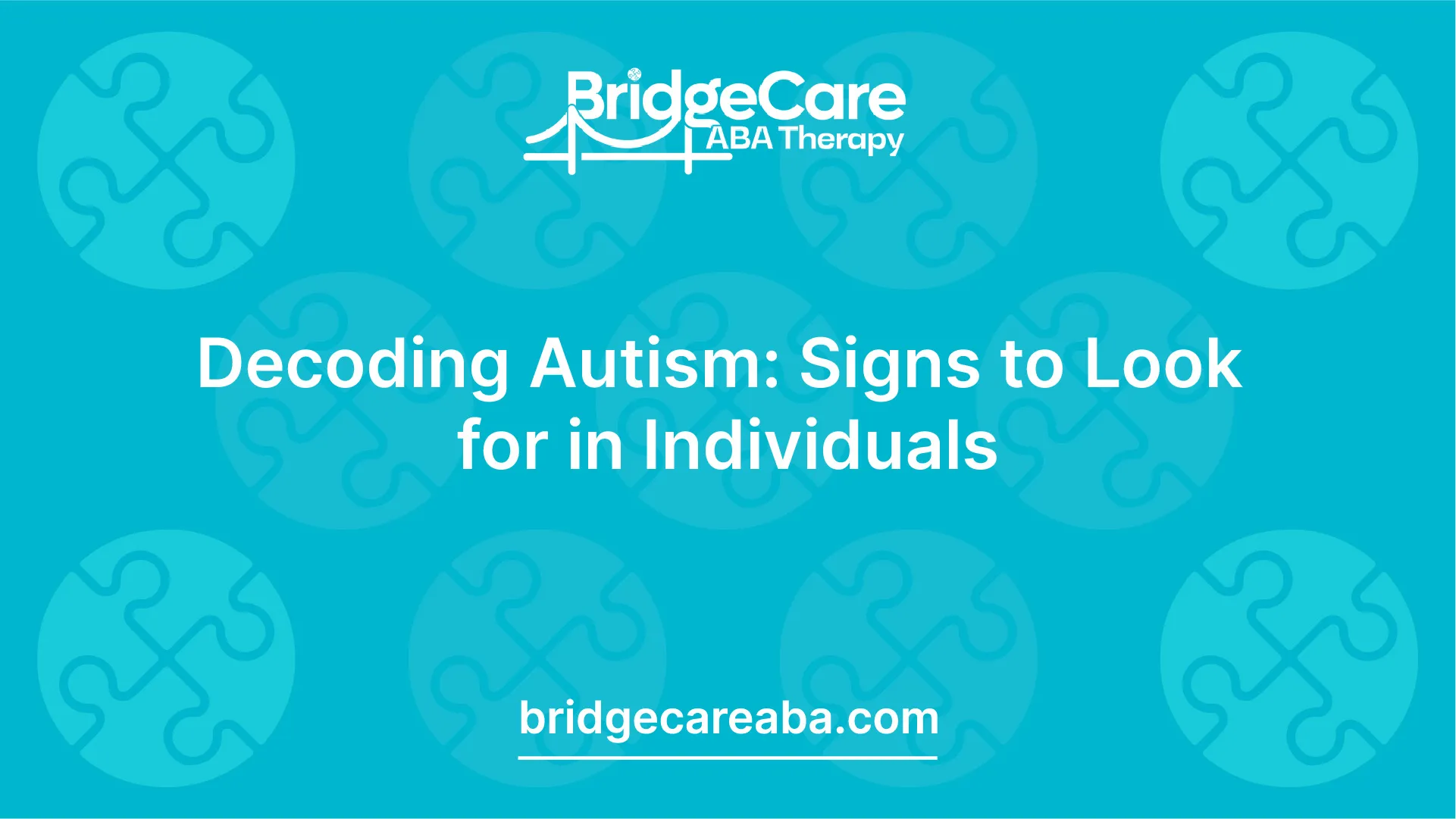Routine strategies that Autism Spectrum Therapies professionals recommend
Trick Symptoms And Signs to Identify in People With Behavior Autism
When you experience a person with behavior autism, recognizing crucial symptoms and signs is essential. You could notice challenges in social communications and interaction, along with a solid need for regimens. Additionally, sensory sensitivities can bring about overwhelming experiences. Understanding these qualities can improve your assistance and treatments, yet there's even more to reveal about just how these habits show up in day-to-day scenarios. Allow's explore what these indications really look like.
Obstacles in Social Communications
When you communicate with someone on the autism range, you could see they struggle with social cues and communication. These difficulties can make social communications feel overwhelming for them.
Additionally, you might find that they favor regimens and familiar settings, which can limit their willingness to participate in new social scenarios. When they do involve, they may speak about their interests in terrific information without observing if you're interested. This can result in one-sided discussions that leave you really feeling detached. Understanding these difficulties can assist you approach communications with empathy and persistence, promoting a much more comfortable atmosphere for both of you.
Difficulty With Verbal and Non-Verbal Communication

Identifying these indications is essential, as it assists you far better support and involve with individuals on the autism spectrum. By recognizing their interaction challenges, you can cultivate a lot more purposeful connections and offer a more encouraging setting.
Recurring Behaviors and Regimens
Communication difficulties often go along with various other indicators of autism, such as repeated habits and a solid choice for regimens. You may discover that individuals with autism typically participate in certain, repetitive actions, like hand-flapping, rocking, or repeating phrases. These habits can give convenience and a feeling of control in a frequently overwhelming world.
Routines are similarly important; many individuals thrive when they follow a structured routine. You might locate that adjustments to these regimens can bring about substantial distress. As an example, if they have a day-to-day ritual of consuming morning meal at a certain time or adhering to a particular course to institution, any type of disruption can cause anxiety.
Recognizing these patterns aids you comprehend their habits and provide support. By suiting their demand for routine and allowing recurring actions, you can develop a much more comfortable setting that alleviates their obstacles.
Sensory Sensitivities

Usual Sensory Triggers
Sensory sensitivities can substantially impact every day life for people with autism, as particular stimulations often activate frustrating reactions. Typical sensory triggers consist of loud sounds, intense lights, and strong scents. You might observe that sudden noises, like alarms or alarm systems, create anxiety or distress. Fluorescent illumination in shops can really feel unpleasant and harsh. Structures can likewise play a substantial duty; rough fabrics or specific food textures might be excruciating for you. Additionally, crowded areas can bewilder your detects, making it tough to concentrate or relax. Comprehending these triggers can assist you manage your setting much better. By understanding what impacts you, you can take actions to reduce discomfort and enhance your everyday experiences.
Behavior Reactions Discussed
Comprehending your behavior reactions to sensory sensitivities is essential, as they frequently reveal how you interact with the globe. You may discover that certain audios, lights, or appearances overwhelm you, resulting in anxiety or pain. When confronted with these stimuli, you could take out, cover your ears, or perhaps respond strongly. These actions aren't simply quirks; they're your means of dealing with overstimulation. You might additionally discover on your own looking for specific sensory experiences, like deep stress or peaceful atmospheres, to assist ground yourself. Identifying these patterns helps you comprehend your needs far better and can assist how you connect them to others. By acknowledging your sensory level of sensitivities, you can function in the direction of creating an environment that feels much more convenient and comfortable for you.
Coping Approaches Overview
Identifying your sensory sensitivities is just the first action; currently it's time to explore coping techniques that can help you manage those experiences efficiently. Start by developing a sensory toolkit customized to your demands. Developing a structured routine can additionally give predictability, reducing anxiousness around sensory overload.
Limited Rate Of Interests and Focus
While lots of individuals establish a broad range of passions, those with autism often show limited rate of interests and an intense concentrate on specific topics. You could observe that someone with autism can invest hours diving right into their favorite topic, whether it's a specific sort of train, a details flick, or a clinical idea. This intense emphasis isn't just a hobby; it can come to be a central component of their identity and social communications.
You might find that conversations rotate around these rate of interests, and they may battle to engage in broader topics. By recognizing and recognizing these restricted rate of interests, you can cultivate a helpful environment where they feel valued and comprehended, permitting for even more significant links and interactions.
Emotional Guideline Troubles
Individuals with autism frequently face challenges in emotional law, which can like this be affected by their extreme emphasis on particular passions. You could observe that when a person is deeply participated in a preferred activity, they can experience solid feelings, whether excitement or stress. This intensity occasionally makes it difficult for them to shift equipments or handle their feelings when things don't go as intended.

Irregularity in Developmental Landmarks
When it comes to developing milestones, you'll observe that individuals with autism usually reveal a vast array of variability. You might see a child excel in language abilities yet battle with social communications.
It's important to recognize that each individual's trip is one-of-a-kind. Some might develop intricate abilities early, just to deal with difficulties later on. Others might take longer to achieve basic landmarks yet then flourish in specific areas. Observing these patterns can help you recognize their toughness and needs better.
Often Asked Inquiries
Exactly How Is Autism Identified in Children and Grownups?
To identify autism in children and grownups, specialists evaluate habits, communication abilities, and social interactions. They commonly use standard examinations, interviews, and monitorings to establish if a private fulfills the requirements for autism spectrum disorder.
Exist Different Types of Autism Spectrum Disorders?
Yes, there are different sorts of autism range problems, consisting of Asperger's syndrome and pervasive developing disorder-not otherwise specified. Each type varies in seriousness and features, so recognizing these distinctions anonymous can aid you much better assistance individuals with autism.
What Therapies Are Effective for People With Autism?
When taking into consideration efficient therapies for people with autism, you'll find options like Applied Behavior Evaluation, speech therapy, and work-related treatment. Each method can assist enhance interaction, social skills, and day-to-day functioning tailored to specific needs.
Can Individuals With Autism Lead Independent Lives?
Yes, people with autism can lead independent lives. With the ideal support, skills training, and sources, you can aid them create self-sufficiency, take care of daily tasks, and grow in various environments, promoting their independence.
Exactly How Can Family Members Support Loved Ones With Autism?
You can sustain your enjoyed ones with autism by developing a structured setting, encouraging their passions, exercising persistence, promoting interaction, and promoting social abilities. Celebrate their success, regardless of just how tiny, and build a supportive neighborhood.
Although several individuals on the autism range can recognize and make use of language, they often face significant obstacles with both non-verbal and spoken communication. Recognizing these indications is vital, as it helps you much better assistance and engage with people on the autism spectrum. You may discover that individuals with autism commonly involve in specific, repeated actions, like hand-flapping, rocking, or repeating expressions.Sensory level of sensitivities can significantly influence day-to-day life for people with autism, as particular stimuli often set off overwhelming responses.When it comes to developmental landmarks, you'll discover that individuals with autism usually reveal a broad range of variability.